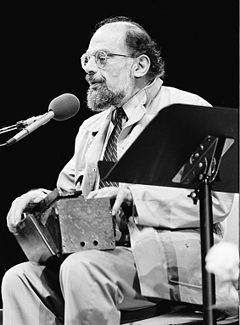Once again, your Bloguero notes that it is Columbus Day Weekend. Your Bloguero often takes ten days off at this time. Why? Funny you should ask. Your Bloguero has short answers: it’s his Birthday. Your Bloguero was born exactly 399 years after the christening of Cervantes in 1547. Also, it’s a weekend he takes off to help facilitate a Shamanic Men’s Retreat. This year will be the second wonderful year of that gathering. And finally, your Bloguero cannot abide the celebration of Columbus Day, which he sees as the beginning of the subjugation of this hemisphere. The last is best expressed in this 2008 post:

The Church In Baracoa, Cuba
Across the Caribbean from desde Desdemona is Baracoa, a small town inaccessible by land from before 1500 (when Columbus first landed there in 1492) until the 1960’s. In 1512 Baracoa was the first Spanish settlement in Cuba. It’s like Macondo. The lush forest of the Sierra Maestre and El Yunque, the tallest peak in Cuba, tower over the town. The town is nestled against the warm ocean. North of town is Maguana, a beautiful, white beach, shared by tourists and occasional foraging pigs.
Join me in Baracoa. We can celebrate Not Columbus Day together.
In the church in Baracoa is a part of one of the original crosses that Columbus planted in Cuba when he first landed there. It’s not under guard. To see it, you knock on the back door of the church. Nobody there? Go across the street, as Bardo did, to find someone in the Parochio to let you in. Bardo goes and asks to see El Cruz. The woman behind a counter says ok, let us find the key. She takes Bardo across the street, opens the back door, enters the silent, dark church, and in the nave there it is, in a glass case with no security at all, El Cruz de la Parra . The cross’s 500 year old wood (it’s been carbon dated) is held up by a metal holder (which is from much later on).
In many ways this is the most important relic, and maybe the most important marker in the history of the Western Hemisphere. It represents the beginning, the zero mile marker on the highway from then to now. If Columbus, instead of planting a cross and taking on the conquest and/or conversion of indigenous people, had said, “This place is really great so let’s hang out here and enjoy it with the locals,” the last 500 years would have been significantly, inconceivably different. And maybe, Bardo reminds us, a whole lot better. Bardo cannot believe what he’s looking at. He makes a small donation to the church, and wanders off into the heat of the day. The woman closes up the church. Nobody else is waiting to see the cross.

If the Cruz were in New York or Madrid, it would have laser Mission Impossible security, armed guards, and lots of publicity around it. Lines of buses of tourists. Souvenir shops. Air conditioning. T-shirt sales. But there’s none of that in Baracoa. Just the cross and the empty church in the middle of Baracoa.
Bardo buys a bottle of Habana Club rum ($3.25), sits on the roof of the Casa Particular where he’s staying, and wonders if Macondo could be any more beautiful. He decides Baracoa is perfect and beautiful. He loves the way the mountainous jungle cascades to the town at the edge of the ocean. Columbus, he thinks, was right about one thing: Baracoa is one of the most beautiful places Bardo has ever seen. About everything else, he decides, he’s with Alejo Carpentier, Columbus was dead wrong.
This Week In The Dream Antilles is usually a weekly digest. Sometimes, like now, it isn’t actually a digest of essays posted in the past week at The Dream Antilles. Your Bloguero regrets that this week because two of his recent posts, one from this week and one from last week, are among the best he has written. Regardless, please leave a comment so that your Bloguero will know that you stopped by. Or click the “Encouragement Jar” if there is one. Your Bloguero likes to know you’ve visited.
cross posted from The Dream Antilles




Recent Comments